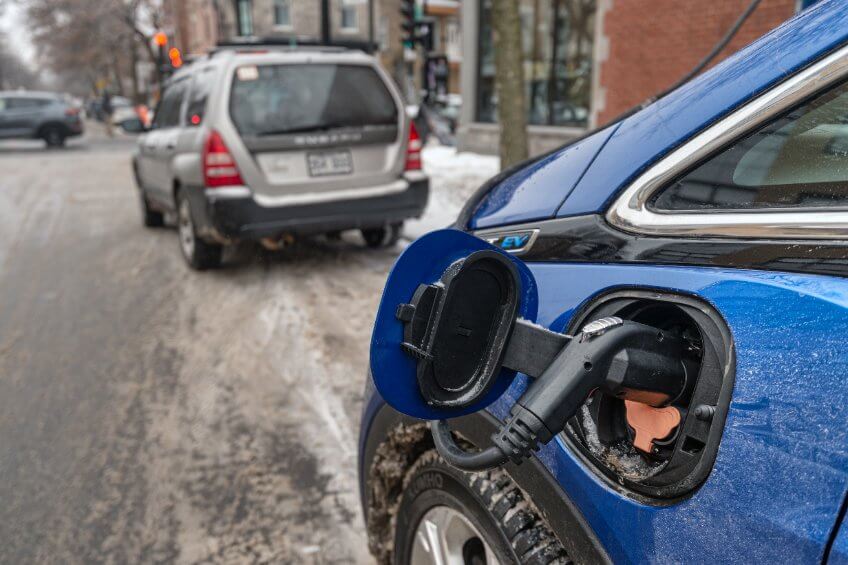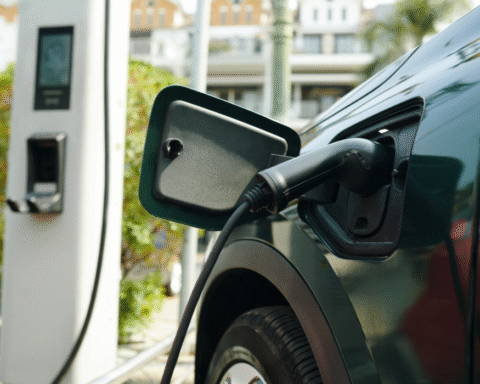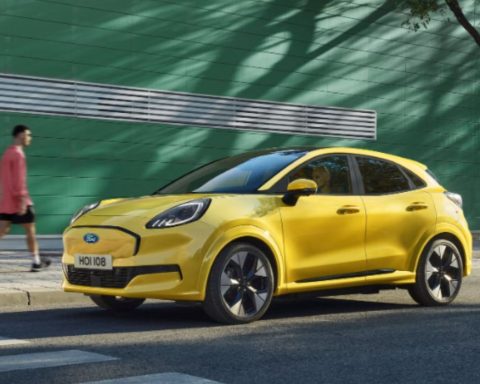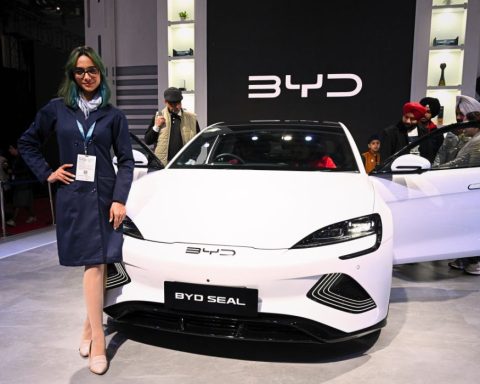Nate Wallace is a clean transportation program manger at Environmental Defence.
In the 1960s, a scientist named Ruth Reck working at General Motors found in her research that emissions from car tailpipes were causing global heating and would result in dire consequences for the planet. Reck presented her findings on climate change to three top executives at GM’s corporate headquarters, two of whom would later become CEO.
They ignored her.
Even after knowing the threat of climate change, they refused to alter their business plans or lobbying strategies – because it could affect their bottom lines. Decades later, it seems that car corporations haven’t changed much. The one difference now is they like to pretend they care about the climate.
Listening to car industry lobbyists these days, you’d think you were listening to electric vehicle evangelists. They’ll say the real reason Canada is lagging behind other countries in EV adoption is a demand deficiency caused by the lack of consumer education, purchase incentives and charging infrastructure.
Please ignore the man behind the curtain.
If Canada had a lack of consumer demand for EVs, we wouldn’t see buyer waiting lists that are up to three years long. Despite 83% of consumers willing to test drive an EV and 51% willing to buy one, most dealerships (55%) don’t have a single EV in stock. Increasing purchase incentives in this low-supply environment – a demand subsidy – would simply grow these wait lists and potentially inflate prices.
While the availability of charging is a real problem – and we should be doing more to build out a robust network – it’s wrong to suggest that it’s the primary barrier holding back EV adoption. Studies have shown that boosting public charging to even universally available levels – making charging as convenient as gassing up – would move the dial for EV new market share by only 1.5%. It’s an important part of the policy solution but not an actual replacement for stronger policies – as car companies like to suggest.
There’s a problem with lack of consumer education on the benefits of EVs? Don’t tell that to the advertising departments of major car companies. Nearly 80% of all car ads are for gas-guzzling SUVs and trucks, which are approximately 20% less fuel efficient than regular cars. Car companies are the second-largest investor in digital advertising in Canada, just behind retail – spending $1.6 billion in 2019. This advertising power is part of the story of why these fuel-inefficient vehicles have risen from half of new car sales to eight out of every 10 new car sales over the last decade. This trend explains why Canada has the most polluting vehicle fleet in the world.
What’s really going on here?
While car companies like to brag about how many new EV models they’re bringing to market, they produce very low volumes of them. That’s because EVs have smaller margins compared to gas guzzlers – so they make less money selling them. Car companies will be able to make a significant amount of money on EVs only if they scale production, achieve lower production costs from “economies of scale” and can offer more competitive prices. But that will cost billions of dollars.
Why do that, when you can just keep making more money from existing investments in manufacturing gas guzzlers? They’re in the business of making money – and the money is good. North America’s “big three” automakers – Ford, Stellantis and GM – collectively made $41.5 billion (Canadian) in operating profits last year.
Automakers are trying to fight against the federal government’s plan to bring in regulations that will enforce Canada’s EV sales targets, and effectively ban the sale of gasoline-powered cars by 2035, because they stand to lose money that they’d otherwise make profiting from the pollution. In order to meet sales targets, they’d be forced to reinvest the profits they make from these gas guzzlers into expanding EV production and offer clean cars at more affordable prices.
Which is why they’re spending so much time and effort trying to deflect blame onto Canadian consumers. The auto industry would like us all to think that Canada’s slow EV adoption rate is your fault, rather than how they make, market and price their cars.
Let’s not fall for it.







